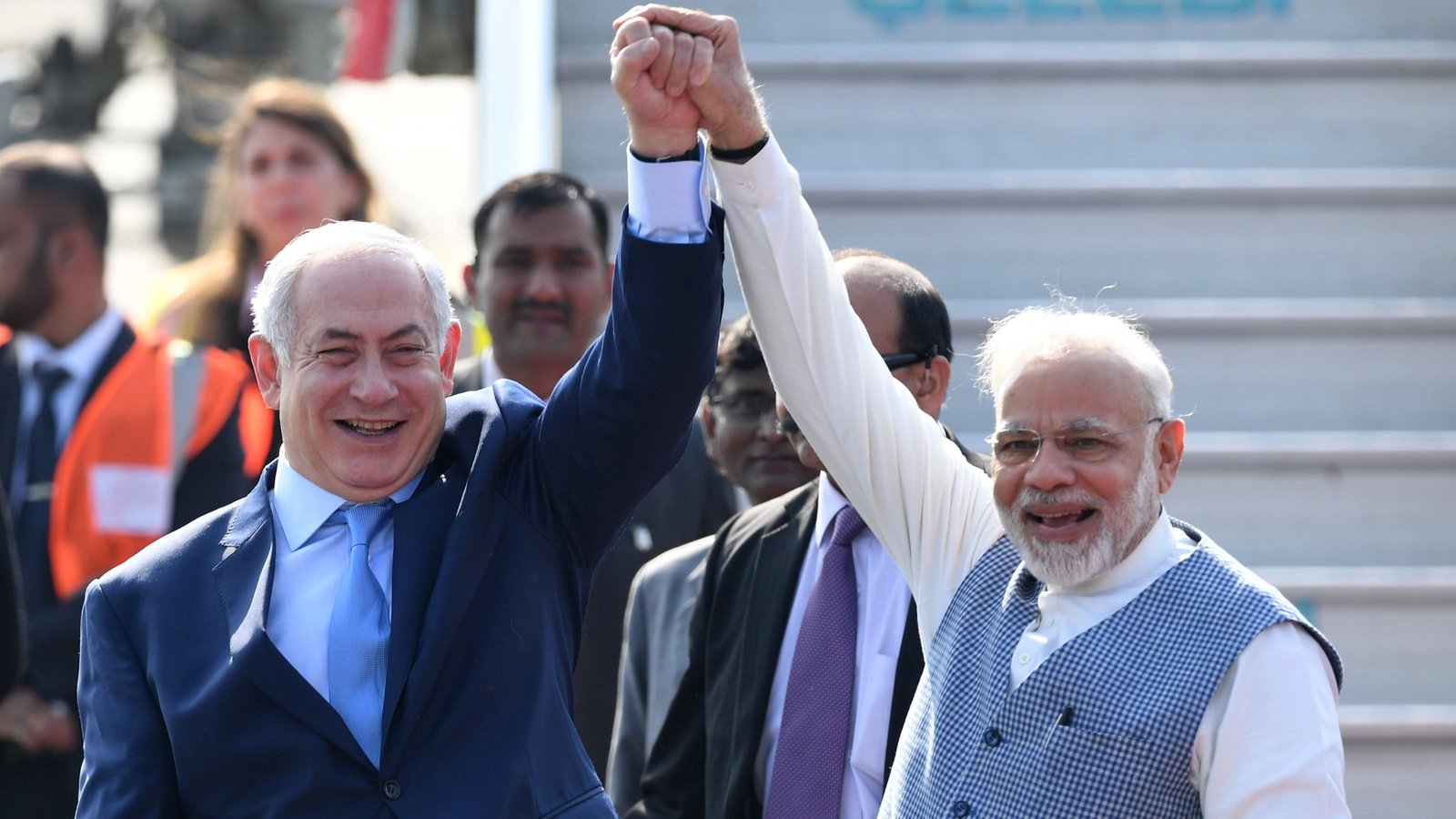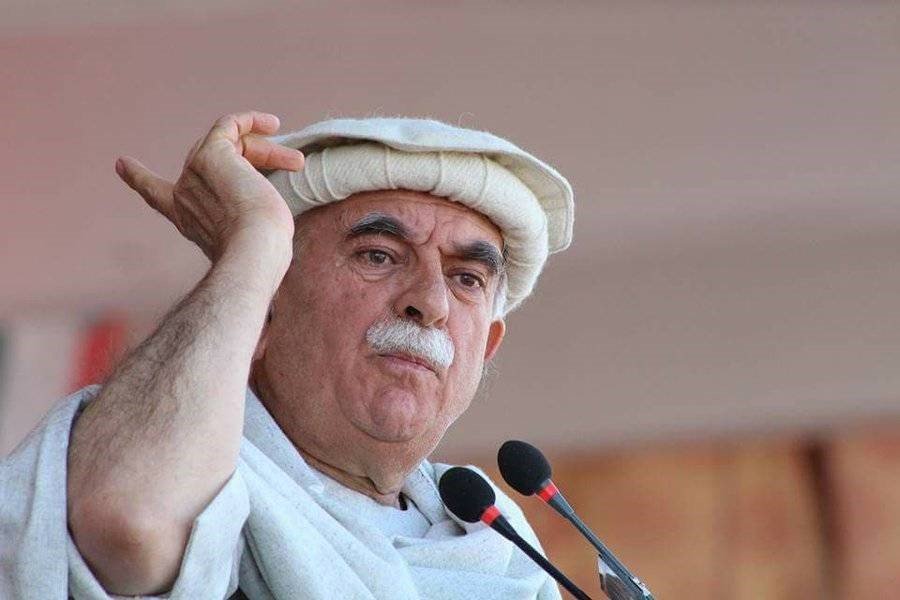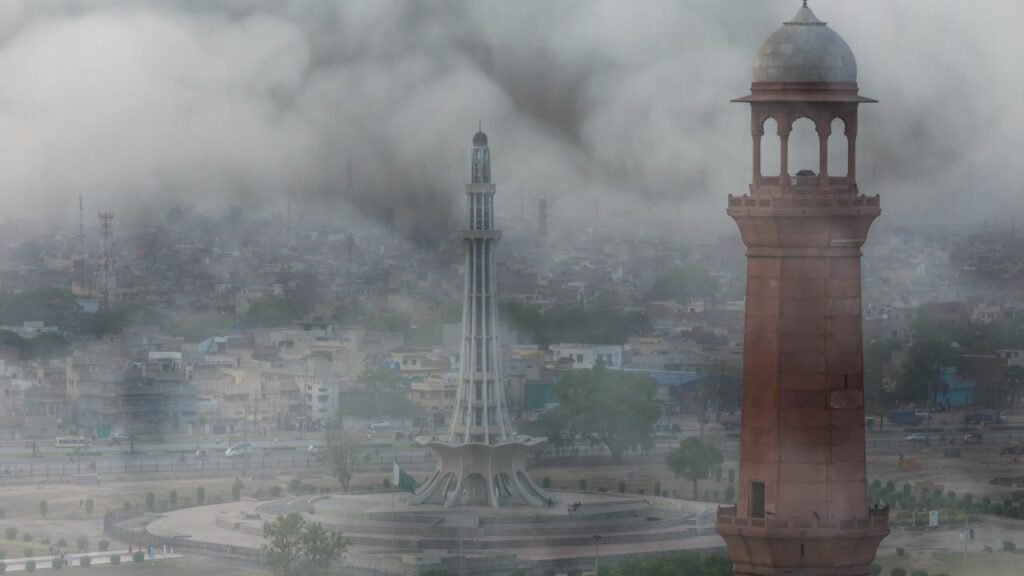Masood Khalid Khan
The close ties between India’s ruling Bharatiya Janata Party (BJP) — the political wing of the Hindutva movement — and Zionist Israel are neither new nor hidden. Yet, recent developments demand urgent attention in Islamabad, particularly regarding Pakistan’s defence preparedness. According to Indian media reports, Israeli Prime Minister Benjamin Netanyahu recently met New Delhi’s ambassador to Israel and a group of Indian journalists. During this meeting, Netanyahu openly praised the role Israeli-manufactured weaponry played in the recent armed conflict between Pakistan and India.
Follow Republic Policy Website
Referring specifically to Operation Sindoor, the Israeli leader remarked, “The things we provided before worked very well on the field.” This statement appears to confirm what many security analysts have long suspected — that Israeli drones, missiles, and other advanced systems were deployed by India in its military aggression against Pakistan. Indeed, Pakistan’s Inter-Services Public Relations (ISPR) had earlier confirmed that Israeli drones used by India were shot down during combat operations.
Follow Republic Policy YouTube
None of this should be surprising when we consider that India is reportedly the world’s largest importer of Israeli weaponry. This arms trade is not a one-way street; India also exports certain armaments and military technology to Israel, further deepening the defence cooperation between the two states. What is emerging is not merely a commercial transaction but a strategic, ideological, and operational alliance with profound implications for Pakistan’s national security.
Follow Republic Policy Twitter
Some observers may attempt to dismiss this as routine defence commerce — Israel sells to whoever pays, and India buys from whoever meets its needs. However, such an explanation ignores the deeper ideological convergence between Hindutva and Zionism. Both are exclusionary, ethno-nationalist ideologies rooted in the politics of identity, premised on the marginalisation of minorities, and sustained by a readiness to employ state violence as a tool of domination.
Follow Republic Policy Facebook
Hindutva’s ideological founders were openly inspired by European fascism and Nazi Germany, praising its authoritarian nationalism. In the contemporary era, both Israel and India frame legitimate freedom struggles — the Palestinian cause and the Kashmiri struggle — as “terrorism,” in an effort to delegitimise these movements internationally. Several Indian political figures and academics have even advocated for the “Israeli model” of occupation and repression to be applied in Indian-occupied Kashmir.
Follow Republic Policy TikTok
The BJP government’s silence on Israel’s ongoing genocide in Gaza further illustrates this alignment. Far from condemning Tel Aviv’s actions, many Indian leaders have expressed solidarity with Israel, reinforcing the ideological and political bond between the two regimes. This marks a complete break from India’s historic stance under Mahatma Gandhi and Jawaharlal Nehru, both of whom consistently voiced solidarity with Palestine and supported anti-colonial struggles. The BJP’s India has, in effect, abandoned this legacy and fully embraced Israel’s narrative of power and militarism.
Follow Republic Policy Website
From a strategic standpoint, the revelations about Israeli weapons being used directly against Pakistan in combat operations are deeply alarming. This is no longer an abstract alignment of foreign policy positions; it is a material military partnership whose consequences are being felt on Pakistan’s borders. The integration of Israeli technology into Indian military planning enhances India’s offensive capabilities, particularly in the realms of surveillance, precision strikes, and electronic warfare.
Follow Republic Policy YouTube
For Pakistan, the challenge is twofold. First, it must strengthen its own defence and intelligence apparatus to counter the technological edge this alliance could provide India. Second, it must actively work on the diplomatic front to expose and counter the ideological and military convergence of Hindutva and Zionism. This requires more than routine condemnation — it demands coordinated engagement with allies, strategic partners, and international organisations to raise awareness of the destabilising effects of this nexus.
Follow Republic Policy Twitter
Pakistan’s security policymakers must also recognise that the Indo-Israeli partnership is not operating in isolation; it is part of a broader geopolitical realignment where ideological compatibility reinforces military cooperation. Both regimes thrive on narratives of siege, portraying themselves as surrounded by hostile forces to justify aggressive domestic and foreign policies. In such an environment, there is little room for moderation or peaceful resolution of disputes.
Follow Republic Policy Facebook
The use of Israeli drones and missiles against Pakistan also carries a symbolic dimension — it represents the convergence of two occupation-driven ideologies being weaponised against a Muslim-majority state. For Israel, it is an extension of its military reach beyond the Middle East; for India, it is an opportunity to integrate cutting-edge foreign technology into its military doctrine against Pakistan.
Follow Republic Policy TikTok
Pakistan must take a proactive stance. Militarily, this means accelerating the development of indigenous defence technologies, investing in counter-drone systems, and enhancing air defence capabilities. Diplomatically, it means strengthening ties with nations that oppose the use of state violence as a tool of suppression, particularly those that have historically supported both the Palestinian and Kashmiri causes.
Follow Republic Policy Website
The growing Indo-Israeli nexus also underscores the importance of intelligence-sharing alliances. Pakistan’s engagement with friendly nations in the Middle East, Asia, and beyond should include mechanisms to monitor arms transfers, identify emerging threats, and disrupt hostile supply chains. The strategic objective should be to deny India any unchecked advantage that could tilt the regional balance of power.
Follow Republic Policy YouTube
In conclusion, this alliance is not just about arms deals; it is about a shared worldview that normalises occupation, delegitimises self-determination, and weaponises state power against minorities and neighbouring states. For Pakistan, ignoring the military and ideological implications of the Indo-Israeli partnership would be a grave mistake. The revelations surrounding Operation Sindoor are a timely reminder that strategic vigilance must remain constant, and that Pakistan’s defence readiness must evolve to meet the changing dynamics of regional security.
Follow Republic Policy Twitter
The choice before Pakistan is clear — prepare now to counter the combined weight of Hindutva’s aggression and Zionist militarism, or risk being caught unprepared in the face of a well-armed, ideologically aligned adversary. This is a moment for decisive strategic planning, not complacency.
Follow Republic Policy Facebook















